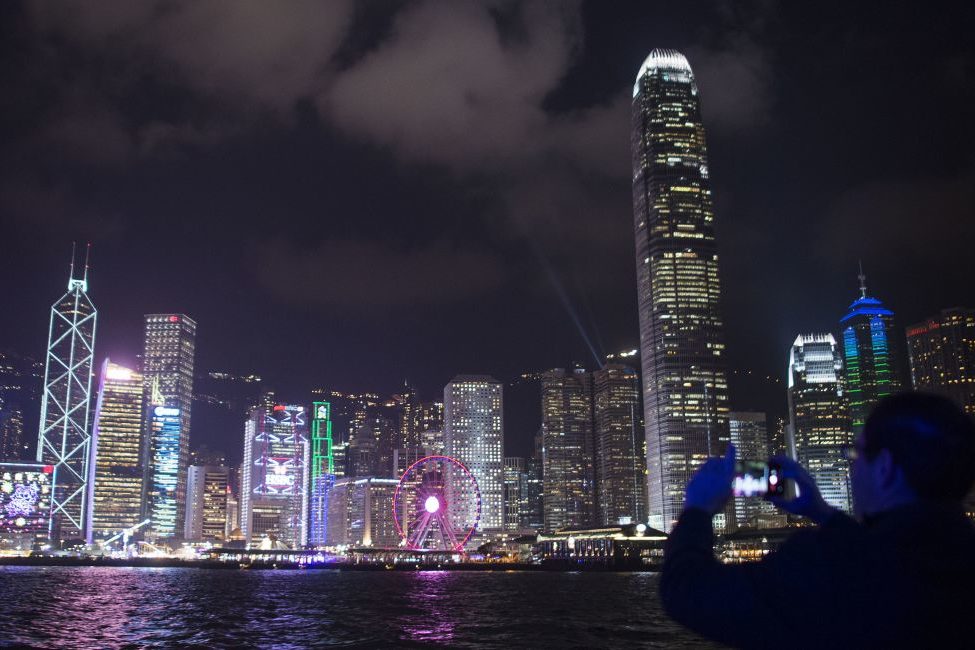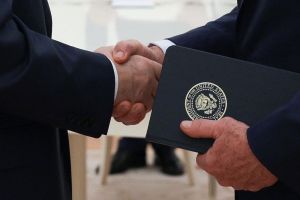There was no way to know that the last trip I took to Hong Kong just a few years ago would likely be my last.
I assumed we still had another 27 years before Hong Kong and China’s ‘one country, two systems’ framework reached its end, but Beijing had other plans. Increasingly emboldened in its domestic social control and assertive in its foreign policy, the Chinese government broke its promise when it sidestepped Hong Kong’s legislature to pass a sweeping national security law targeting ‘secession’, ‘subversion’ and ‘collusion’. These concepts are so broadly-defined as to be easily weaponized against even a nominal critic of the CCP, with a possibility of life in prison as punishment. This law effectively criminalizes dissent and its jurisdiction has been extended beyond Hong Kong’s shores and made applicable to non-citizens. Secretary of State Mike Pompeo condemned this move as a ‘death knell of Hong Kong’s autonomy’. What this really is, of course, is the end of Hong Kong itself.
In a way, my sorrow and rage over this state of affairs is unearned. I have no claim to the city of Hong Kong apart from being a frequent, enamoured visitor who hailed from Singapore. Both were cosmopolitan, fast-paced, Asian cities that bore the indelible mark of a British colonial past. But Hong Kong, especially in the Eighties and Nineties, always had the reputation of being more free-wheeling, gaudier, and edgier. In contrast to Singapore where life was fastidious, orderly and sometimes a little drab, Hong Kong offered an otherworldly realm of extremes and dualities: vertigo-inducing skyscrapers and sublime peaks covered in unspoiled greenery, the confluence of East and West, grit and glamor, ultra-modern technology and old world tradition, affluence and destitution.
Stepping into the city itself is an assault on all your senses. Bright neon signage vie for attention from the jangle of above-ground trams and the cacophony of horns. Amid the milieu of Mong Kok’s 24-hour stores where every price tag is up for negotiation, the aromas of egg tarts and barbecued meats mingle with Chinese incense and fancy French perfume. Brusque, irascible taxi drivers are easily disarmed into wildly spewing their politics. It wasn’t uncommon to see revelers — young expats and locals — spill out of Lan Kwai Fong, sitting on sidewalks drinking champagne or imbibing a Tsingtao beer as they gazed over Victoria Harbor.
More than 150 years of British rule shielded Hong Kong from the disastrous consequences of Mao’s policies. For a few brief decades, it was even cut off physically from the mainland. In charting its own path, Hong Kong developed a distinct identity. Central to it is the cultural anchor of its local vernacular: Kongish. It is Cantonese, often sprinkled with English words to form a syncretic tongue with a sing-song cadence. Traditional script is used in writing everywhere, in stubborn defiance to the mainland’s use of simplified characters. The more talk there was about imposing Mandarin on Hong Kong, the more it became obvious that this wasn’t merely a quarrel about linguistics; it was ultimately, about a battle for the very soul of Hong Kong.
At every turn, Hong Kong sought to emphasize its apartness from China and in 2014, the people got their wish. Hong Kong’s local identity was cemented in the global consciousness when the term ‘Hong Konger’, defined as ‘a native or inhabitant of Hong Kong’ was officially added to the Oxford English Dictionary. Finally, the people of Hong Kong were free to define themselves without using the increasingly fraught ‘Chinese’ label. By the time the pro-democracy protests started last June, polls revealed that a staggering 75 percent of young adults saw themselves as a ‘Hong Konger’ as opposed to ‘Chinese’, ‘Chinese in Hong Kong’ or ‘Hong Konger in China’. This growing sense of cultural separatism threatens China’s overriding national interest, so Beijing designed its security law precisely to make expressions of Hong Kong’s unique identity and conceptions of self-image more difficult.
Also at stake for Hong Kong is its status as a global financial and cultural center. The sheer vertical scale of tightly-packed high-rises is in many ways a fitting backdrop for Hong Kong’s turbo-charged, hyper-capitalist society. Humans are compartmentalized, condensed and economically stratified into buildings that soar to almost impossible heights – some in micro-apartments so small they’re called coffin cubicles, others in sky palaces overlooking the golden sands of Repulse Bay. It’s one of the few places on earth that has a bona fide Wild West feel to it. Hong Kongers in general are a chatty bunch and rarely hold back what they really think. Everyone you meet seems to have gambler’s blood fueling their hustle in pursuit of opportunity.
This enterprising spirit and culture of relatively unrestrained expression propelled Hong Kong’s film industry into a juggernaut that dominated Asian box offices and found ardent devotees in the West. In its prime, only the United States would create and export more films. Hong Kong produced a conveyor belt of movie stars and directors who transcended the orient to become household names in Hollywood: Jackie Chan, John Woo, Wong Kar Wai and the legendary Bruce Lee.
Hong Kong’s enticing hold on Asia’s imagination also extended to its press and publishing world. Its dynamism once supported a vibrant community of writers, academics, booksellers, and publishers who now have either abandoned their craft or persist under the shadow of fear. Who could blame them, after the CCP’s extrajudicial abduction of the Causeway bookseller who specialized in tabloid-style books critical of the Chinese government?
[special_offer]
And then there’s Tiananmen, which, according to the Chinese government, should never be named. Given the historical purge of the massacre from the mainland, this leaves Hong Kong’s press and publishing industry as the only witnesses to its history and keepers of its memory. Can people have any confidence that this will continue while the CCP promises to crack down on subversion?
The security laws have already had a chilling effect on Hong Kong. Opposition party members have resigned and fled. Some prominent activists have fallen into nihilism given the new legal boundaries on their lives.
Hong Kong’s allure as a financial hub has been in decline for as long as mainland China’s own metropolises were in ascendance. But its robust imaginative landscape, respect for civil freedoms and reputation for stability and safety, still made Hong Kong a competitive market and desirable place to live. By installing a puppet government with mediocre leadership skills, passing the security law and creating a notoriously opaque security bureau to enforce it, the CCP is essentially sabotaging whatever remaining leverage Hong Kong still has. It’s death by a thousand cuts.
Without its cultural and intellectual DNA, Hong Kong simply isn’t Hong Kong. Twenty-seven years left of borrowed time has collapsed to zero. Decades ago, Milton Friedman said, ‘Hong Kong is the bellwether. If the Chinese stick to their agreement to let Hong Kong go its own path, then China will also go that way. If they don’t, that is a very bad sign.’
Friedman was right — this is indeed a very bad sign. It is time to sing a requiem for Hong Kong as we know it.

























